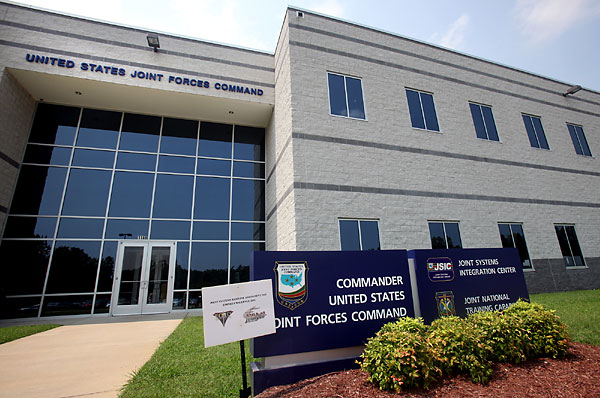In the News
ICYMI: Lessons learned from JFCOM
Feb 15 2011
 |
The following op-ed by Senator Warner appeared in Sunday’s Norfolk Virginian-Pilot.
The Pentagon's decision to resize, refocus and rename Joint Forces Command has prompted uncertainty and anxiety for many families across South Hampton Roads.
Hold on to your hats. It may be just the beginning.
As our nation begins to grapple with unsustainable deficits and debt, we must acknowledge that the region and the state inevitably will confront more efforts to reduce the federal and military investments that have helped to sustain our economy.
But I would suggest that Virginia's rapid, coordinated and bipartisan response to the Pentagon's initial proposal to completely shutter JFCOM helped hone an effective model for us to deploy in the future.
It was last August when Defense Secretary Robert Gates recommended the complete elimination of JFCOM as part of a broader plan to rein in spending. JFCOM employs about 5,800 military and civilian workers and private contractors, and about 3,900 of these employees work at facilities in Norfolk and Suffolk.
After our initial shock wore off, elected officials at the local, state and federal levels pulled together to fight this decision. When the Pentagon was not forthcoming with metrics or analysis that made the business case for closing JFCOM, we gathered our own information and effectively presented an opposing argument.
We were able to demonstrate it was not cost-effective to abandon existing leases or to walk away from over $300 million that taxpayers have already invested to support the cutting-edge computer modeling and simulation capacity at JFCOM.
We partnered with private-sector organizations and leaders of this region's strong contractor community. We reached out to veterans in Hampton Roads and enlisted assistance from several retired flag officers as we marshaled our strongest arguments and built a solid case for maintaining several core JFCOM functions.
Once we received an opportunity to make that case, we argued that JFCOM's closure would significantly degrade the military's joint training, operations and war-fighting capabilities.
And top Pentagon officials ultimately agreed with us - concluding correctly that JFCOM's modeling and simulation infrastructure and live virtual construction battle labs provide a capability that simply does not exist anywhere else in the military today. This unique capability allows our military to "fight the fight" in a joint and coalition environment before actually deploying to the combat zone. It has saved countless lives by teaching many of the hard lessons of combat in a virtual environment, allowing commanders to hone their skills before committing troops to go into harm's way.
Last week, the Defense Department announced Hampton Roads will keep about half of the 3,900 jobs initially targeted for elimination. The JFCOM realignment is expected to take about a year to complete, which should provide affected workers a chance to transition into new jobs or prepare for other opportunities.
I am especially pleased the Defense Department's final plan preserves and refocuses the modeling and simulation expertise that has grown up around JFCOM's campus in Suffolk.
I believe this presents us with unique opportunities to build out the mod/sim capabilities that already exist, most notably at Old Dominion University's Virginia Modeling, Analysis and Simulation Center. An independent economic analysis prepared for ODU at the end of 2007 determined that mod/sim provided a $365 million economic boost to Hampton Roads.
I believe we can preserve and build upon this base, pursuing additional opportunities to strengthen the role of mod/sim in the region's economy. Even with a realigned JFCOM, there is no reason we cannot aggressively pursue private-sector investments in other mod/sim applications, such as homeland security, transportation, logistics, medicine, education and gaming.
And while Virginia politicians, including me, typically are quick to salute and celebrate our state's historical partnership with our nation's military, we also must adapt to new fiscal realities.
Virginians can support and should encourage greater efficiency and cost savings by the federal government, even when potential cuts might have a negative effect here.
It helps that we now have a proven model for how to effectively respond to proposed cuts in a logical, mature and bipartisan way.